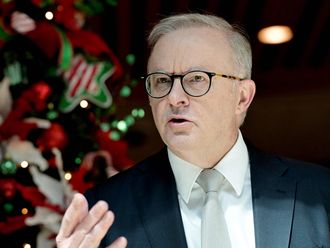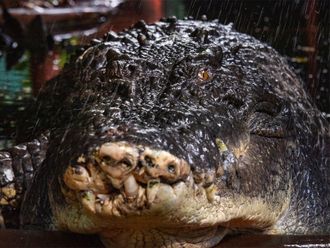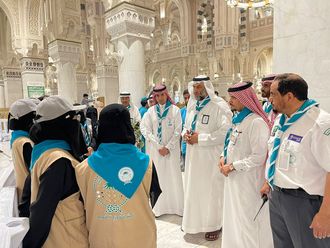Belgrade: Not long ago, Serbian troops were notorious for nationalism, aggression and even war crimes. Now they want to be known as international guardians of peace.
In the 1990s, under the regime of Slobodan Milosevic, they shelled towns in Croatia and Bosnia and supported Serb rebels when they attacked civilians in those newly independent nations. UN peacekeepers were sent to the Balkans to protect people from the Serb-led attacks.
Now Serbia's pro-Western government is bent on improving the army's tarnished image. Its primary tactic — participating in overseas peacekeeping missions, turning yesterday's attackers into the protectors of today. At the same army centre on the outskirts of Belgrade where troops once trained for the wars in Croatia, Bosnia and Kosovo, dozens of local and foreign instructors are teaching soldiers to be guardians of the peace in places like Chad, Cyprus, Lebanon and Somalia.
Foreign advisers
The trainers include advisers from the US and other members of Nato — the military alliance that bombed Serbia in 1999 to halt its military crackdown on the secessionist province of Kosovo, which has since become an independent nation.
Several dozen soldiers from Serbia already are serving in UN units in Congo, Chad, Liberia, Ivory Coast, Cyprus and Lebanon. The effort will be eventually expanded to 40-member platoons, to be followed by companies of 180 soldiers and even larger units.
"We are the first soldiers from our country. We hope that after this mission the image of Serbia will be better," said Staff Sgt Alexander Beocanin, part of a seven-man Serb unit serving with the UN force on the divided island of Cyprus.
He and his colleagues patrol the UN-controlled buffer zone separating the Greek Cypriot south from the Turkish Cypriot north. The soldiers' duties involve monitoring and observing the zone and preventing anyone from straying into it.
"We have so much experience in war, now we want peace," Beocanin said.
Beyond expanding its existing deployments, Serbia also hopes to deploy a battalion to join the 12,500-strong UN Interim Force in Lebanon, or Unifil, which has monitored the border with Israel for the past 32 years.
Peacekeeping represents a marked turnaround for the Serbian military. After the Balkan wars of the 1990s, more than 40 Serbian politicians, generals and other officials were indicted by the UN war crimes tribunal in The Hague for war crimes. Dozens more have faced trial either in Serbia or in other countries that once formed the Yugoslav federation.












